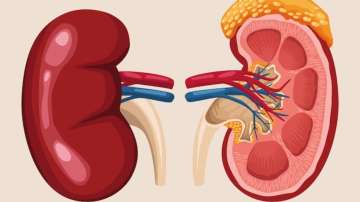Kidney failure is an increasingly common problem in the United States, affecting more and more people each year. Fortunately, if you are aware of the early warning signs of kidney disease, you can catch it early and take action to prevent further damage. Below are 10 early warning signs of kidney disease that you should not ignore.
Changes in urination frequency or volume: If you are urinating less or more frequently than usual, or if the amount of urine you produce has changed significantly, it could indicate a problem with your kidneys.
Swelling in your extremities: Swelling in your hands, feet, and ankles can indicate that your kidneys are not functioning properly and that excess fluid is building up in your body.
Fatigue: Kidney diseases can cause anaemia, which can lead to fatigue.
Difficulty Concentrating: The waste products in your blood can build up and affect your brain functions, causing difficulty with concentration.
Skin Rash: A skin rash could indicate that there is something wrong with your kidneys as they are not filtering out toxins from the body efficiently enough.
Itching: Itching can signal a problem with the kidneys as they are not able to filter out toxins from the body efficiently enough.
Muscle Cramps: Muscle cramps may be caused by too much waste in the bloodstream due to kidney diseases.
Nausea and Vomiting: If you are experiencing nausea and vomiting, it could be a sign that your kidneys are not able to rid your body of toxins efficiently enough.
Bad Breath: Your kidneys are responsible for removing toxins from the body, and if they cannot do so effectively, it can lead to bad breath.
Metallic Taste in Your Mouth: This can occur when there is an accumulation of toxins in your body due to poor kidney function.
If you experience any of these symptoms, it is important to seek medical attention as soon as possible so that treatment can begin before any further damage occurs to your kidneys. Early diagnosis and treatment will increase your chances of a successful outcome and reduce the likelihood of experiencing any long-term complications from kidney failure. It is also important to stay vigilant and monitor any changes in your health that could be indicative of a problem with your kidneys so that it can be addressed as soon as possible.

